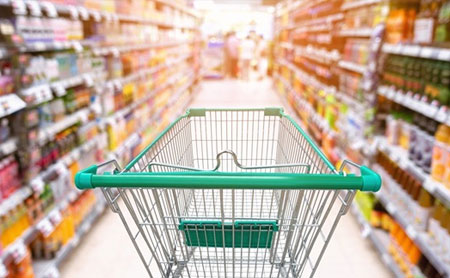Andrew Murray. Picture: Supplied
We asked Andrew Murray, vice-president of finance, Africa zone at AB InBev, whether it’s money that will now never be invested, or just capital spend delayed
President Cyril Ramaphosa’s much-touted investment drive is starting to look as threadbare as his promises to eradicate corruption. First, global brewer Heineken indicated it will ice a R6bn expansion in SA thanks to the ruinous booze ban, then SA Breweries, now part of AB InBev, said it will cancel R2.5bn of spend as part of its annual capex programme, having lost as much as 30% of this year’s sales. Worse, next year’s R2.5bn capex is under review too. We asked Andrew Murray, vice-president of finance, Africa zone at AB InBev, whether it’s money that will now never be invested, or just capital spend delayed.
AM: The capital for this year is money that will not be spent. We had programmes that were cancelled for the course of 2020 and we’re reviewing what will be spent in future.
AM: There are a number of different projects that we earmarked at the beginning of the year for different strategic purposes, routine maintenance and so on. Some of the projects would be investment in our innovation pipeline, investment in technology systems, and investment in maintaining the assets we currently have.
You must be bitterly disappointed with the government.
AM: Look, we’re concerned with the ban. We’re a corporate citizen and we’ve been in SA for 125 years, and we support appropriate and sustainable measures to curb the spread of Covid-19, but in our view, a ban on the sale of beer is not one of those. For us, it’s a million livelihoods impacted.
Have you managed to get any constructive discussion with the government, or have you just been stonewalled?
AM: There’s a lot the government has to wrestle with and I’m sympathetic to the decisions that have to be made there, but in short, the second ban was a surprise to us as an industry; we were not consulted. We continue to make ourselves available, we want to be part of the solution, we continue to try to engage with the government, but we haven’t as yet had a formal engagement on our proposals.
You have to be diplomatic, but has anyone responded to anything?
AM: We’ve had some short responses to targeted questions, but in terms of a more holistic discussion that allows us to sit across the table and hear one another, to engage meaningfully and make informed decisions, there has not been that type of full engagement yet.
Are we throwing away our appeal as an investment destination? You’re not South African, so perhaps you have an outsider’s view on how this is being seen by the investor community.
AM: You’re right, I am American. Look, we’re in SA and committed to remaining in SA. That said, you may have seen [that] when AB InBev released results globally, there was an impairment taken on the investment in SA. Circumstances have changed and there are signs that are troubling. Partially those signs are with respect to the economic situation and the projections for GDP in the short to medium term. As an investor looking where to put capital, for sure the certainty and stability of where you’re putting that money is quite important and it is possible to be paralysing for folks putting new investment into an environment that is quite unstable.
I hope we can find the right path here in SA, and grow the economy. But right now it’s a difficult environment.
If it doesn’t change, could AB InBev write off the value of its SA assets entirely?
AM: I think we’re quite a long way from any consideration or discussion about a complete write-off of the investments. Again, we’re focused right now on helping the country through the pandemic; helping our vast supply chain survive through the pandemic — because our business also relies on thousands and thousands of others who we work with, and if those folks are unable to operate, our ability to operate in the future also becomes a bit of a risk. We need constructive dialogue and we need a good path forward in order to help the economy return to growth.
If you had to explain to your granny the effect on production, what happened with the overnight ban?
AM: There are dozens of steps across the whole production chain, and it starts with the local farmers that we partner with. The brewing process takes about three weeks to complete from the time you initiate it, and so we’re working ourselves through the liquid, we’re doing so at a slightly elongated schedule, and then the ripple effects are replacing the raw materials, the packaging materials, and everything else at a much slower clip as a result.
Article Source: https://www.businesslive.co.za/fm/money-and-investing/2020-08-06-booze-ban-ab-inbev-battles-to-keep-faith-in-sa/





